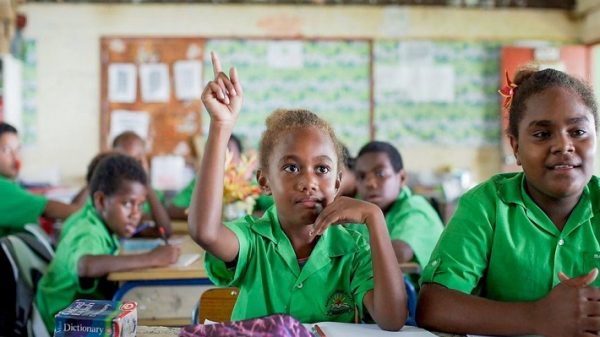Global education summit targets pandemic-hit schooling

Shawdesh desk:
A global education summit in London is aiming to raise $5bn (£3.6bn) to get 88 million more children into school in some of the world’s poorest countries.
The UK has promised £430m to the Global Partnership for Education, which gathers aid from donor countries to support education in 92 countries.
The event, hosted by the UK and Kenya, will provide aid for the next five years, supporting 175 million children.
During the day world leaders will make funding pledges.
“Too many children around the world – girls in particular – were already out of school before the pandemic,” said UK Prime Minister Boris Johnson.
“Enabling them to learn and reach their full potential is the single greatest thing we can do to recover from this crisis,” he said, urging the international community to contribute.
However, Mr Johnson has faced criticism, including from some of his own MPs, for pushing ahead with a cut in the UK’s overseas aid budget.
The aim of the Global Partnership for Education is to boost education in low-income countries, which it argues will improve the health, prosperity and opportunities for some of the world’s most deprived communities.
Kenya’s cabinet secretary for foreign affairs Raychel Omamo warned of the disruption caused by the pandemic – but said “education is the pathway, the way forward”.
Opening the event, UK Foreign Secretary Dominic Raab emphasised the value of investing in girls’ education as the “engine of progress” – with better-educated mothers improving the health and wellbeing of their families.
Education for girls is the “biggest game-changer”, he told the summit.
‘The best equaliser’
“Education is the best equaliser,” says Angel Mbuthia, a Kenyan campaigner for access to education.
The 26-year-old student leader, currently secretary for gender at the All Africa Students’ Union, says education provides a “ripple effect in giving solutions to our most pressing problems”.
For instance improving health education is more cost effective than having to treat serious illnesses.
“Once you have a citizenry that is well-educated, they’re able to take more preventative measures,” she says.
Preventing youth unemployment, creating more hi-tech industries, “political awareness” and promoting gender equality in Kenya will all depend on improving education, she says.
“It’s a bedrock, the best foundation,” she says,
Angel supports campaigns for girls to have fair access to education, in rural areas as well as cities, and wants that to lead to fair representation in areas such as politics and the legal system.
She argues that events such as the global summit need to give a voice to those who are excluded from a chance of education.
In terms of whether donor countries should fund education elsewhere, she says individual countries cannot only look within their own borders – because international issues will still affect them, whether it’s refugees, Covid or climate change.
“That’s one realisation we’ve had from Covid-19,” she says. An outbreak in China is now “affecting someone in a very rural part of Kenya”.
“We have a responsibility to be global citizens, to talk about these issues,” she says.




























Leave a Reply